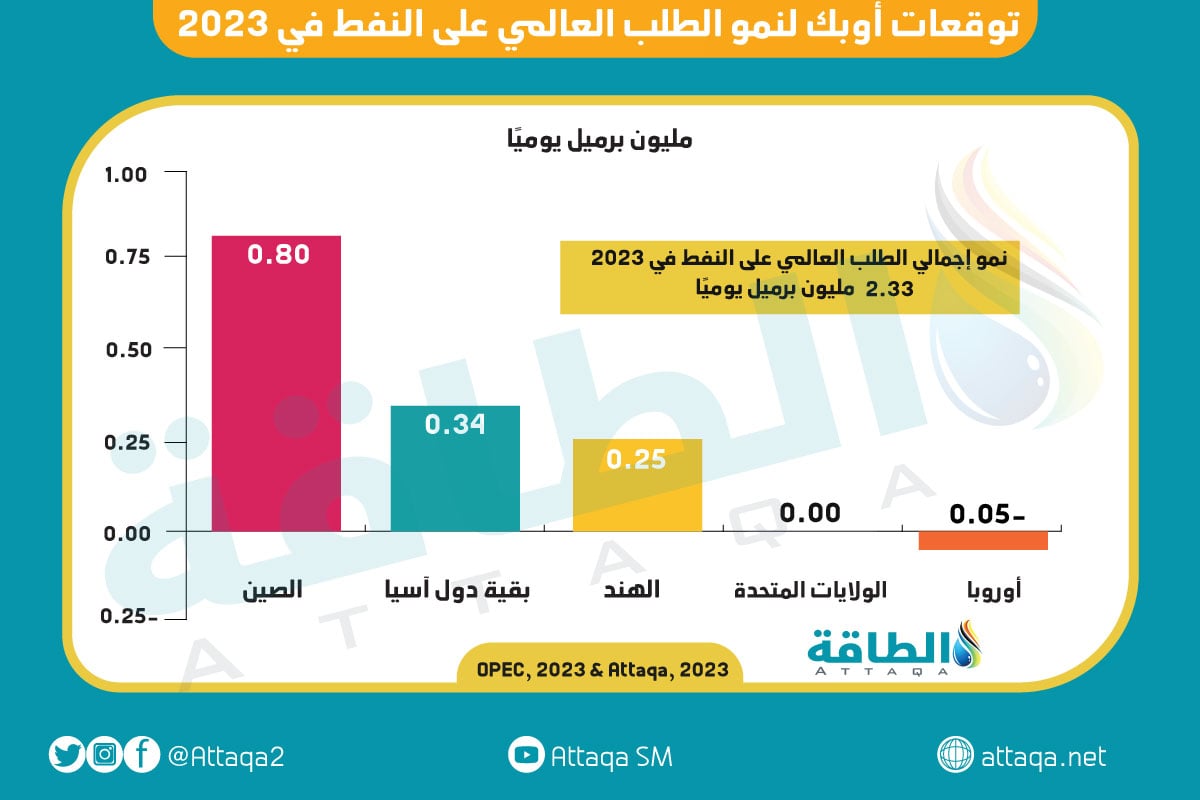OPEC Secretary General Haitham Al-Ghais called again to address the lack of investment in the oil sector, noting that there is no one-size-fits-all solution for a sustainable energy future.
He explained that the general focus should be on reducing emissions and using all types of fuel; The world will need more energy in the coming decades, as populations and economies grow.
Al-Ghais wrote – in an article published by the “The Global Governance Project” platform – that there is no one-size-fits-all solution for the future of sustainable energy. The right path for one may not be the right path for another.
The Secretary General of the Organization of the Petroleum Exporting Countries (OPEC) stressed that meeting this growth, ensuring energy security and affordable access, and reducing global emissions in line with the Paris Agreement, requires all unprecedented energies and investments, with cooperation to achieve a just and lasting transition.
Lack of investment in the oil sector
In its 2022 World Oil Outlook, OPEC predicted that global energy demand would expand by 23% until 2045.
The Secretary-General of OPEC stressed that meeting this growth, ensuring energy security and affordable access, and reducing global emissions in line with the Paris Agreement, requires all unprecedented energies and investments, with cooperation to achieve a just and lasting transition.
For the oil industry alone, which will account for nearly 29 percent of the world’s energy needs by 2045, Al-Ghais indicated that the total global investment requirement is $12.1 trillion between now and then, equivalent to more than $500 billion annually.
Al-Ghais confirmed that the recent annual levels were much lower than this amount, due to the industrial downturn, the pandemic, and the increasing focus on environmental, social, and governance issues.
He said, “In fact, we believe that not enough investments are allocated to all energies… Simply put, the sustainability of the global energy system is at stake.”
He added that there is a need for a “long-term investment-friendly climate suitable for producers and consumers.”
The OPEC Secretary General stressed that chronic underinvestment must be corrected. It’s not about waiting for tomorrow, it’s about making it happen today.
The role of OPEC in energy security
The Secretary General of OPEC highlighted the readiness, willingness and ability of the member states of the Organization to play a major role in helping to provide energy to the world and reduce emissions.
Al-Ghais said – in his article -: “We are investing in the capacity of the exploration and production sectors, and refining … We are mobilizing cleaner technologies and a wide range of our human expertise to help decarbonize the industry.”
He added, “We are making significant investments in renewable energy and hydrogen, the use of carbon capture and storage, and other technologies, in addition to promoting the circular carbon economy to improve overall environmental performance.”
Al-Ghais stressed that energy transitions are developing slowly and have many paths, as proven by history.
“We also need to remember the sad fact that more than 700 million people still do not have access to electricity, and 2.4 billion use inefficient and polluting systems,” he said.
What can be seen in the energy market turmoil of the past 18 months or so is what could happen if the world does not deal with the interlocking complexities of energy, according to the OPEC Secretary General.
He continued, “It is clear that no one has all the answers.. In fact, we may not know all the questions, but that does not mean that we cannot act now.”
regulated transmission of energy
The Secretary General of OPEC stressed that there may not be a one-size-fits-all solution for a sustainable energy future. But cooperation and inclusive action will be essential to achieving a just and lasting transition.
“We are fully in favor of a global multilateral approach, with cooperation at the fore,” Al-Ghais said. “We need to work with each other, not against each other.”
He continued, “We look forward to the 28th session of the Conference of the Parties to the United Nations Framework Convention on Climate Change this year in the United Arab Emirates (member of OPEC) and its advocacy for a comprehensive plan, as the event conducts the first global assessment since the Paris Agreement.”
Al-Ghais referred to the statements of the appointed head of COP28, Dr. Sultan Ahmed Al-Jaber, during which he stressed that there is a need for “maximum energy and minimum emissions.”
“This is a key idea of the G-7 leaders when they meet in Hiroshima (Japan) as we plan an orderly energy transition, driven by the challenges of energy security, affordability and sustainability,” he said.
Al-Ghais expressed his hope that the future will see investments and financing in the energy transition, with a focus on the “all peoples, all fuels and all technologies” approach.
Outlook for oil demand growth
OPEC kept its expectations for oil demand growth in 2023, almost unchanged from last April’s estimates, at about 2.33 million barrels per day, bringing the total to 101.90 million barrels per day, according to the monthly report issued by the organization on May 11.
OPEC indicated that global oil demand grew by about 2.13 million barrels per day on an annual basis during the first quarter of 2023 to 101.58 million, before rising to 103.25 million barrels per day in the fourth quarter of 2023.
Oil demand forecasts in China saw upward revisions due to the better-than-expected performance of the Chinese economy, but were offset by declines in other regions.
The Organization of Petroleum Exporting Countries estimates oil demand growth in China by 800,000 barrels per day in 2023, compared to last month’s estimate of 760,000 barrels per day.
The following graph – prepared by the specialized energy platform – shows OPEC’s expectations for oil demand growth in 2023:

related topics..
Also read..

Leave a Reply